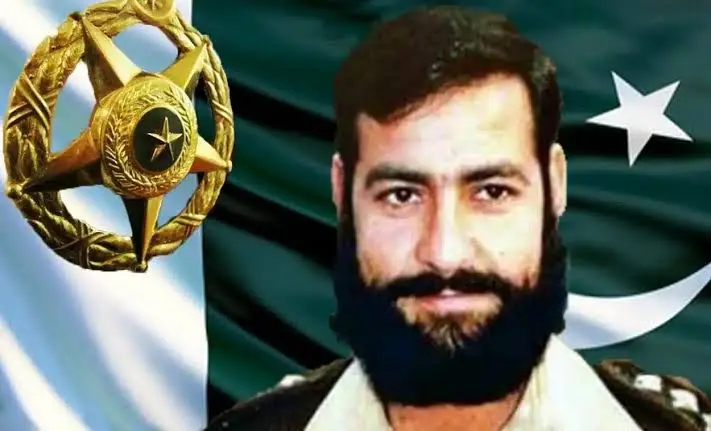
Pakistan’s recent tribute to Captain Karnal Sher Khan, a Kargil war hero it once disowned
The Forgotten Martyr: A Hero Once Denied
In the summer of 1999, the icy heights of Kargil bore witness to one of the most intense military confrontations between India and Pakistan. Amid the bloodshed, Captain Karnal Sher Khan of Pakistan’s Northern Light Infantry emerged as a fierce combatant, reportedly leading a counterattack at 17,000 feet in the Gultari sector. His bravery earned him India’s respect so much so that an Indian Army officer penned a commendation for his valour.
Yet, when his body was recovered on Tiger Hill, Pakistan refused to acknowledge him. Despite clear identification documents found on his person, Islamabad denied any involvement of regular troops in the conflict. The Indian government, through diplomatic channels and even the International Committee of the Red Cross, attempted to return his body. But Pakistan’s silence was deafening.
At the time, this denial wasn’t just bureaucratic it was symbolic. It reflected Pakistan’s broader refusal to admit its military’s role in the Kargil incursion. The disavowal of Captain Sher Khan’s identity was a calculated move to preserve a narrative: that the conflict was driven by Kashmiri militants, not state actors. In doing so, Pakistan not only disrespected a fallen soldier but also inflicted emotional trauma on his family and tarnished the traditions of military honour.
A Sudden Salute: Honouring the “Lion of Kargil”
Fast forward to July 2025. On the 26th anniversary of his death, Pakistan’s top military brass including Army Chief Field Marshal Syed Asim Munir laid wreaths at Captain Sher Khan’s grave in Swabi, Khyber Pakhtunkhwa. The Inter-Services Public Relations (ISPR) hailed him as a symbol of “unwavering courage and patriotism,” calling his sacrifice a guiding light for future generations.
The same man whose body was once refused is now celebrated as the recipient of Pakistan’s highest military honour, the Nishan-e-Haider. His story is being retold in textbooks, memorials, and military ceremonies. Social media buzzed with hashtags like #LionOfKargil and #SherKhanShaheed, while state-run media aired documentaries glorifying his battlefield heroics.
But this sudden reverence has not gone unchallenged. Critics argue that the tribute, though overdue, is politically convenient. It comes at a time when Pakistan’s military faces growing scrutiny over its role in domestic politics and foreign policy failures. Honouring a long-forgotten martyr may serve as a distraction a way to reclaim moral high ground without addressing past deceptions.
Moreover, the gesture has stirred emotions across the border. Indian veterans and analysts have called out the hypocrisy of celebrating a soldier whose existence was once denied. “It’s not just about one man,” said a retired Indian colonel. “It’s about rewriting history without accountability.”
Memory, Morality, and the Politics of Remembrance
The saga of Captain Karnal Sher Khan is more than a tale of battlefield valour it’s a mirror reflecting the contradictions of national memory. His story forces us to ask: Who gets to be remembered, and on what terms?
For Pakistan, the belated recognition is a double-edged sword. On one hand, it restores dignity to a soldier who gave his life in service. On the other, it exposes the moral cost of political expediency. The refusal to accept his body in 1999 wasn’t just a diplomatic manoeuvre, it was a betrayal of military ethics and human decency.
This episode also underscores the power of narrative in shaping public consciousness. By honouring Sher Khan now, Pakistan seeks to reclaim a sanitized version of the Kargil War, one where heroism overshadows culpability. But history, as they say, has a long memory. And while nations may rewrite their pasts, the truth often lingers in the margins.
In India, the story has reignited calls for transparency and justice for its own Kargil martyrs, like Captain Saurabh Kalia, whose brutal death in Pakistani custody remains a haunting chapter. His father’s decades-long quest for justice continues, reminding us that remembrance without accountability is hollow.
Captain Karnal Sher Khan’s journey from disowned casualty to national icon is a poignant reminder of how nations grapple with uncomfortable truths. His legacy, now embraced by the very state that once denied him, challenges us to confront the politics of memory with honesty and courage.
Stay updated with the latest news on Rapido Updates. Keep yourself updated with The World, India News, Entertainment, Market, Automobile, Gadgets, Sports, and many more